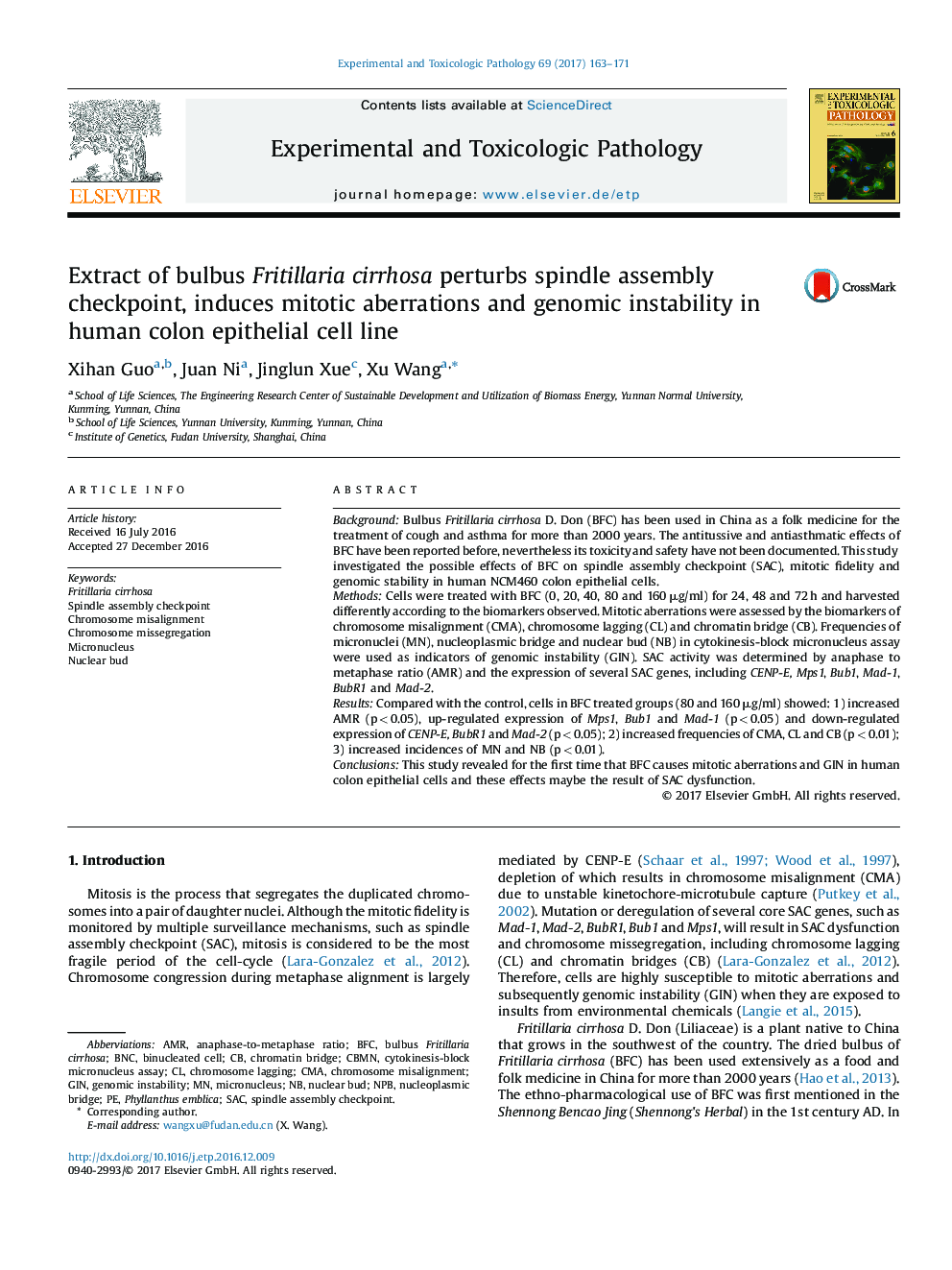| Article ID | Journal | Published Year | Pages | File Type |
|---|---|---|---|---|
| 5549849 | Experimental and Toxicologic Pathology | 2017 | 9 Pages |
BackgroundBulbus Fritillaria cirrhosa D. Don (BFC) has been used in China as a folk medicine for the treatment of cough and asthma for more than 2000 years. The antitussive and antiasthmatic effects of BFC have been reported before, nevertheless its toxicity and safety have not been documented. This study investigated the possible effects of BFC on spindle assembly checkpoint (SAC), mitotic fidelity and genomic stability in human NCM460 colon epithelial cells.MethodsCells were treated with BFC (0, 20, 40, 80 and 160 μg/ml) for 24, 48 and 72 h and harvested differently according to the biomarkers observed. Mitotic aberrations were assessed by the biomarkers of chromosome misalignment (CMA), chromosome lagging (CL) and chromatin bridge (CB). Frequencies of micronuclei (MN), nucleoplasmic bridge and nuclear bud (NB) in cytokinesis-block micronucleus assay were used as indicators of genomic instability (GIN). SAC activity was determined by anaphase to metaphase ratio (AMR) and the expression of several SAC genes, including CENP-E, Mps1, Bub1, Mad-1, BubR1 and Mad-2.ResultsCompared with the control, cells in BFC treated groups (80 and 160 μg/ml) showed: 1) increased AMR (p < 0.05), up-regulated expression of Mps1, Bub1 and Mad-1 (p < 0.05) and down-regulated expression of CENP-E, BubR1 and Mad-2 (p < 0.05); 2) increased frequencies of CMA, CL and CB (p < 0.01); 3) increased incidences of MN and NB (p < 0.01).ConclusionsThis study revealed for the first time that BFC causes mitotic aberrations and GIN in human colon epithelial cells and these effects maybe the result of SAC dysfunction.
